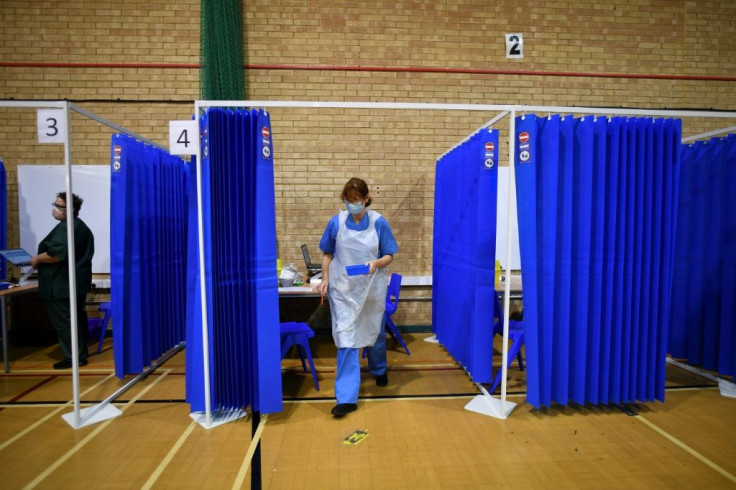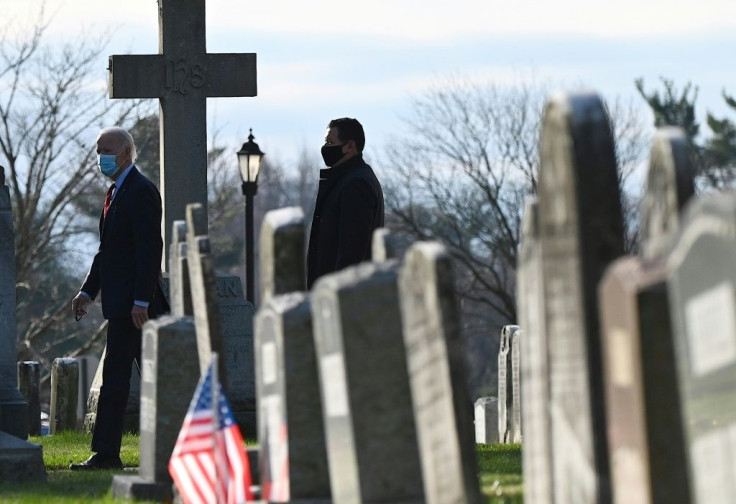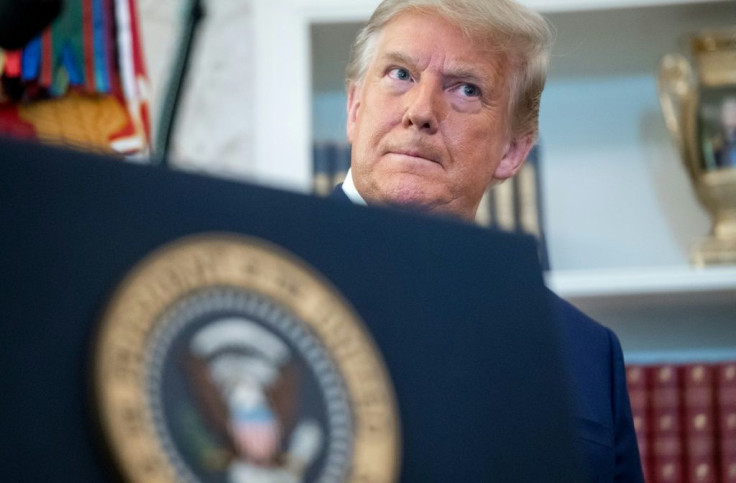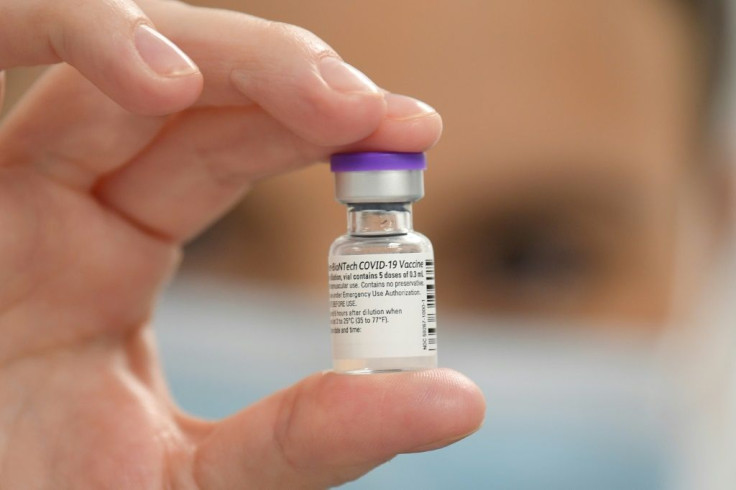Trump Signs Vaccine Decree After Questions Raised On Supply
President Donald Trump announced a decree Tuesday aimed at granting Americans priority access to vaccines, but faced questions over whether the White House missed an opportunity to shore up sufficient doses in the months ahead.
While Trump sought to trumpet his administration's policies related to vaccines at his event, his upbeat message was contrasted by a more cautious presentation held simultaneously by President-elect Joe Biden.
Biden warned that efforts to get the vaccine out to Americans would "slow and stall" if Congress does not urgently come up with funding as he also introduced members of his health team.

It was unclear whether Trump's executive order, which he said would "ensure that American citizens have first priority to receive American vaccines," would hold legal weight, since drugmakers have already signed deals with other countries.
But it signals the White House is concerned about whether it has sufficient doses to meet its immunization targets, which are 100 million people by the end of February and the whole country by June.
Speaking from his headquarters in Wilmington, Delaware, Biden stressed it was imperative for lawmakers to "finish the bipartisan work underway now or millions of Americans may wait months longer to get the vaccine."
Biden also pledged that his administration would carry out at least 100 million vaccinations in his first 100 days in office, a more conservative estimate than that offered by Trump officials.

Biden, who has previously announced that Anthony Fauci will be a member of his Covid team, said he would ask the globally-renowned infectious disease scientist to tell him "what I need to know, not what I want to know."
Fauci also appeared remotely at Biden's event rather than at Trump's.
Trump's speech at a White House "vaccine summit" was also marked by his familiar, unproven claims that the 2020 election was stolen from him.
Biden is due to be sworn in on January 20.

The events follow a raft of positive news related to vaccines, including US regulators calling the Pfizer-BioNTech immunization -- which Britain began rolling out on Tuesday -- safe and effective in a briefing document.
The document further raised expectations that Pfizer will soon be granted emergency approval in the United States, with a meeting on the topic set for Thursday.

A meeting on emergency approval for US firm Moderna's vaccine candidate is scheduled for December 17.
As coronavirus cases soar across the United States and states reinstitute varying levels of closures in response, the vaccines have provided hope to a country weary and grieving over the world's highest pandemic death toll.
On Monday, an overwhelming majority of California's residents went into lockdown, putting 33 million people under stay-at-home orders.
In the meantime, complex preparations are being made across the supply chain to be able to quickly deliver vaccines at the frigid temperatures required.
But while Trump has sought to take credit for vaccine development, the New York Times reported Monday that the White House had missed a chance to lock in the purchase of more Pfizer doses over the summer.
The US has purchased 100 million doses, but declined to extend that order, allowing Pfizer to seal deals with other nations, the Times reported.
Georgetown law professor Matthew Kavanagh told AFP the new presidential decree was an attempt to "write vaccine nationalism into law -- which is both unwise and stretches his legal authority.
"It is neither ethical nor good for Americans to suggest that every healthy young person in the US needs to be vaccinated before the first high-risk person in India or France or Colombia.
"Models have shown that a strategy like this would actually make the pandemic longer, further derail the global economy, and harm Americans."
The president does have the authority to order international assistance efforts not to help less-wealthy countries get access to the vaccine, Kavanagh said.
The briefing document compiled by an advisory committee to the US Food and Drug Administration (FDA) offers the clearest look yet at data on the Pfizer vaccine, and was hailed by experts.
"It appears as good if not better than advertised," Andrew Morris, an infectious disease specialist at the University of Toronto told AFP.
But there was some concern arising from four people in the vaccine group developing Bell's palsy, a rare but non-serious facial paralysis condition.
Vaccine makers Johnson & Johnson and AstraZeneca could be next on the horizon as they are expected to complete their studies early next year.
© Copyright AFP 2024. All rights reserved.




















